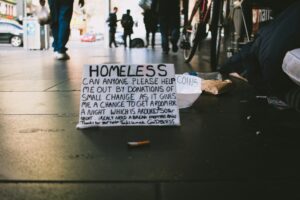High Cost of Homeless Housing: Review of Proposition
Introduction:
Supportive housing is generally considered an effective strategy that combines subsidized housing with resources such as mental and physical health services, education and job training, and drug and alcohol treatment. Temporary shelters and other support facilities are also important tools because they can be used as a stopgap until housing becomes available. Getting people off the streets requires increasing the supply of available housing units and shelter beds as quickly as possible.

The City has prioritized using Proposition HHH, high cost of homeless housing, funds to develop long-term solutions such as supportive and affordable housing. A much smaller share of Proposition HHH funding has been set aside to build facilities such as shelters that can help mitigate the homelessness crisis until supportive housing units are completed. The City’s Housing and Community Investment Department (HCIDLA) which is tasked with administering the program – has noted that Proposition HHH was intended to augment its ongoing efforts to build supportive housing. HCIDLA’s plan is to deliver a total of 10,000 supportive housing units within ten years through separate development pipelines – 7,000 through Proposition HHH and 3,000 through non-Proposition HHH sources.
Proposition High Cost of Homeless Housing (HHH):
Results to Date:
The homelessness crisis in Los Angeles continues despite the City’s efforts to combat the issue. In January 2019, the Los Angeles Homeless Service Authority’s (LAHSA) estimated that there are 36,300 people experiencing homelessness in the City, which represents a 41 percent increase from LAHSA’s 2015 estimate.
A broad coalition of Angelenos voted to approve Proposition HHH in November 2016. Proposition HHH authorized the City to issue up to $1.2 billion in general obligation bonds to partially subsidize the development of supportive housing units for individuals and families who are experiencing homelessness or are at risk of becoming homeless.
Status of Proposition High Cost of Homeless Housing (HHH) housing developments:
As of September 30, 2019, the City’s Housing and Community Investment Department (HCIDLA) reports that almost $800 million has been committed to housing developments and the projects pending approval will push the City beyond $1 billion in total Proposition High Cost of Homeless Housing (HHH) funding commitments. However, most projects that received – or will receive – funding commitments have not been formally awarded loans using Proposition HHH funds and have not yet begun construction.
verification that the developer secured a property on which a Proposition HHH project could be built;
a determination that the project is financially feasible and demonstrates longterm viability as an affordable housing project; and
confirmation that the developer and service provider successfully managed similar supportive housing projects in the past.
Status of Proposition HHH facilities projects:
The City Administrative Officer (CAO) – who oversees the facilities portion of the Proposition HHH program – recently requested an additional $10.5 million in funding, which would increase the total budget for facilities projects to $60 million. The CAO stated the funding shortfall was caused by higher than anticipated construction costs for four facilities projects that are being managed by the City’s General Services Department (GSD).
Cost of housing developments under construction:
Almost three years after voters approved Proposition High Cost of Homeless Housing (HHH), only 19 projects are under construction. When completed, these developments will provide 1,260 total units, 892 of which are supportive housing units.
Cost of projects in pre-development:
There are an additional 60 projects that have been conditionally funded by the City, and are in various stages of pre-development and have not yet begun construction. Predevelopment includes activities such as applying for funding, securing land use approvals, engaging the community, and obtaining permits – many of which occur concurrently.
Potential future delays for projects in pre-development:
The City encouraged developers to build Proposition HHH housing developments near high-quality transit areas through the Transit Oriented Communities (TOC) program. The TOC concept was also approved by voters in November 2016, within the larger framework of Measure JJJ. TOC allows developers to add density, reduce parking requirements, and utilize ministerial (i.e., administrative) approvals in exchange for including supportive or income-restricted housing units. Accordingly, many projects in the Proposition HHH development pipeline were approved through TOC.
Conclusion:
Evaluate the feasibility of reallocating some Proposition High Cost of Homeless Housing (HHH) funds that have been conditionally funded, especially funds committed to housing projects with outlier development costs. This may free up funding for projects with lower per-unit costs or for temporary shelters and other facilities.
a. If shared housing, prefabricated construction, or simplified financing are demonstrated to be meaningful and scalable strategies through the Proposition High Cost of Homeless Housing (HHH) Challenge, allow developers that have been previously awarded Proposition HHH funding to modify their project proposals.
b. If AB 1197 facilitates timely resolution of ongoing litigation challenging the City’s Permanent Supportive Housing Ordinance, allow and encourage developers to reconfigure previously-approved High Cost of Homeless Housing (HHH) projects so that the unique characteristics of supportive housing units are incorporated into land use approvals.
c. If previously-committed Proposition HHH funding becomes available, prioritize the development of facilities such as shelters, clinics, storage, and showers to help better manage the immediate needs of Angelenos experiencing homelessness.
Also Read: Motivators and Barriers for Green Building Construction Market in Turkey
